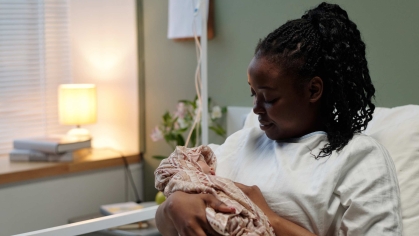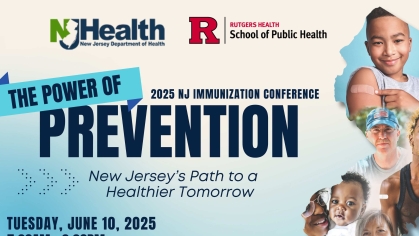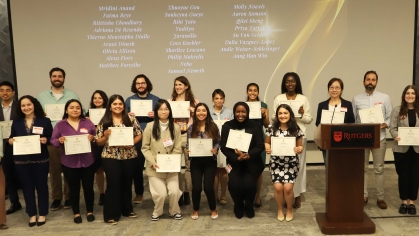
New Jersey Makes Progress in Reducing Unnecessary Cesarean Deliveries and Supporting Maternal Health
Rutgers Health report highlights improvements in care following Nurture NJ policy initiatives.

Rutgers Health report highlights improvements in care following Nurture NJ policy initiatives.

On June 10, 2025, the Rutgers School of Public Health Center for Public Health Workforce Development, in partnership with the New Jersey Department of Health (NJDOH), will host the 2025 New Jersey Immunization Conference.

On Friday, May 9, 2025, the Rutgers School of Public Health held its inaugural Student Showcase and End-of-Year Awards Ceremony in Piscataway, NJ, bringing together students, faculty, staff, alumni, and guests to celebrate an outstanding academic year and recognize the incredible accomplishments across the community.

Nurture NJ is the state’s initiative to improve maternal and infant health through policy and programmatic investments with a vision to make New Jersey the safest, most equitable state in the nation to deliver and raise a baby. Over the past seven years, Governor Murphy has signed over 70 pieces of maternal and infant health-related legislation to support the goals of Nurture NJ, including some of the most revolutionary maternal health policies in the nation.